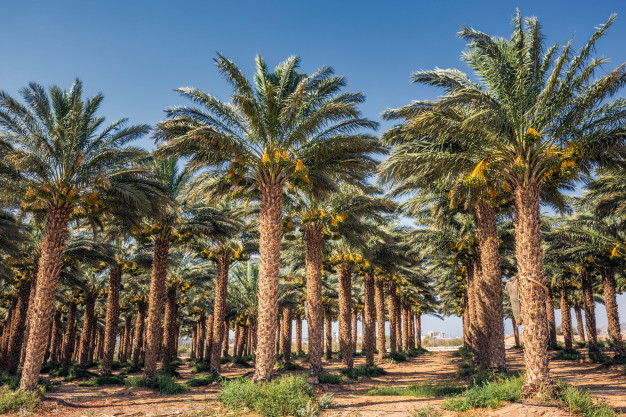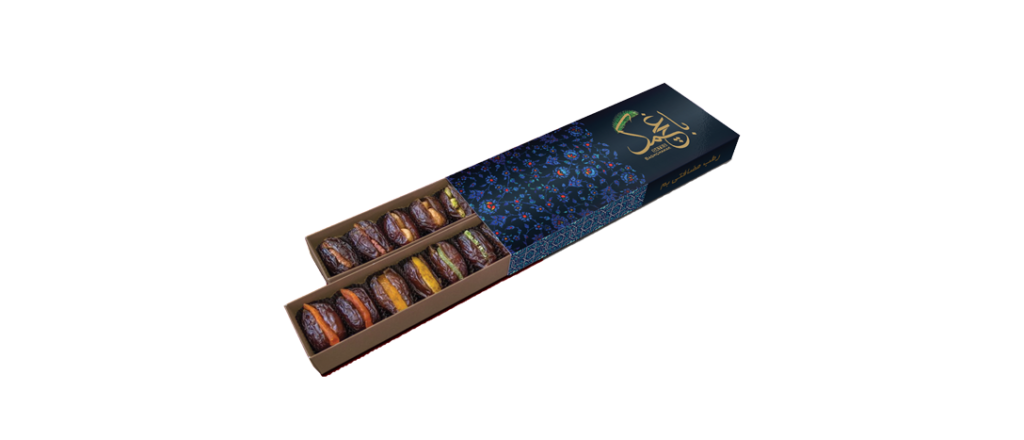Dates are very nutritious, assimilative and energy producing. With the present uncertainty in the world food supply and the expected increase in demand, the date palm could be a good source of food of high nutritional value. In fact, date fruit is rich in nutrients, and due to its dietetic values it has always been held in high esteem by people. Compared to other fruits and foods (apricot: 520 calories/kg; banana: 970 calories/kg; orange: 480 calories/kg; cooked rice: 1,800 calories/kg; wheat bread: 2,295 calories/kg; meat (without fat): 2,245 calories/kg, dates give more than 3,000 calories per kilogram.
Furthermore, the date palm is one of the greatest producers of food per hectare, and world date production is well over 3 million tons.
The date fruit consists of 70 % carbohydrates (mostly sugars), making it one of the most nourishing natural foods available to man. The water content is between 15 to 30 % depending on the variety and on the maturity stage of the fruit.
In most varieties, the sugar content of a date fruit is almost entirely of the inverted form (namely glucose and fructose), important for persons who cannot tolerate sucrose. The invert sugar in dates is immediately absorbed by the human body without being subjected to the digestion that ordinary sugar undergoes. The flesh of dates contains 60 to 65 % sugar, about 2.5 % fiber, 2 % protein and less than 2 % each of fat, minerals, and pectin substances. Date fruits are also a good source of iron, potassium and calcium, with a very low sodium and fat content. In addition, moderate quantities of chlorine, phosphorous, copper, magnesium, silicon and sulfur are also found in the date fruit.
Date fruit is called a mine in itself because it is very rich in minerals. Its phosphorous content is similar to that found in the same quantity of apricots, pears and grapes put together.
Its high content of magnesium (±600 mg/1kg of dates) could also be very beneficial. Date consumers in Saharan areas are known to have the lowest rate of cancer diseases, a fact attributed to the magnesium found in dates.
With only 1 mg of sodium per 100 g, dates are good food for those on a low sodium diet. The iron content of 3 mg per 100g is almost a third of the Recommended Dietary Allowance for an adult male. Note that fiber, even though it is not a nutrient for humans, is of much value in a diet as an aid to digestion and evacuation. There is ample evidence that for most persons a diet fairly high in fibre is healthier than one low in fiber.
Furthermore, dates are a good source of vitamins A, B1 (thiamine), B2 (riboflavin), and B7 (nicotinic acid also called niacin). The following contents per kilogram are an average for all date varieties: vitamin A, 484 international units; B1, 0.77 milligram (mg); B2, 0.84 mg; and B7, 18.9 mg.
Protein is also of particular interest; it is variety dependent and also varies according to the stage of maturity. An average of 1.7 % of protein of the wet weight of the flesh is roughly obtained.


